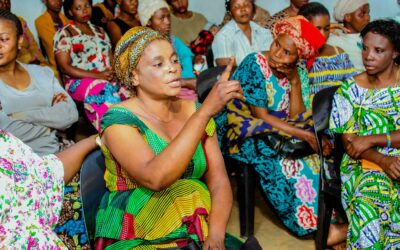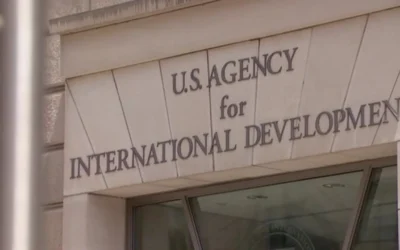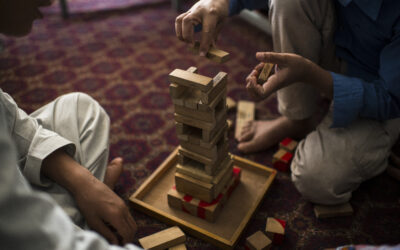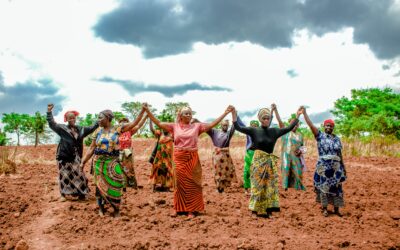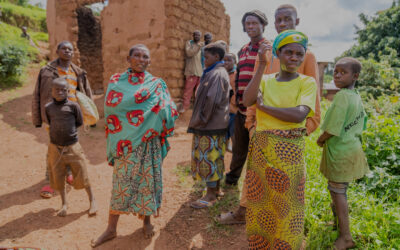Investing in Education: An Interview with Theopista Seuya
Theopista Seuya is the Asante Africa Foundation Country Director for Tanzania. She holds a Master’s Degree in Education Policy and International Development from the University of Bristol, and previously served as a teacher, head of school, and university lecturer. One Day’s Wages is partnering with Asante Africa Foundation to support the “Bridging the Gap” program that prepares vulnerable students to successfully transition into secondary school.
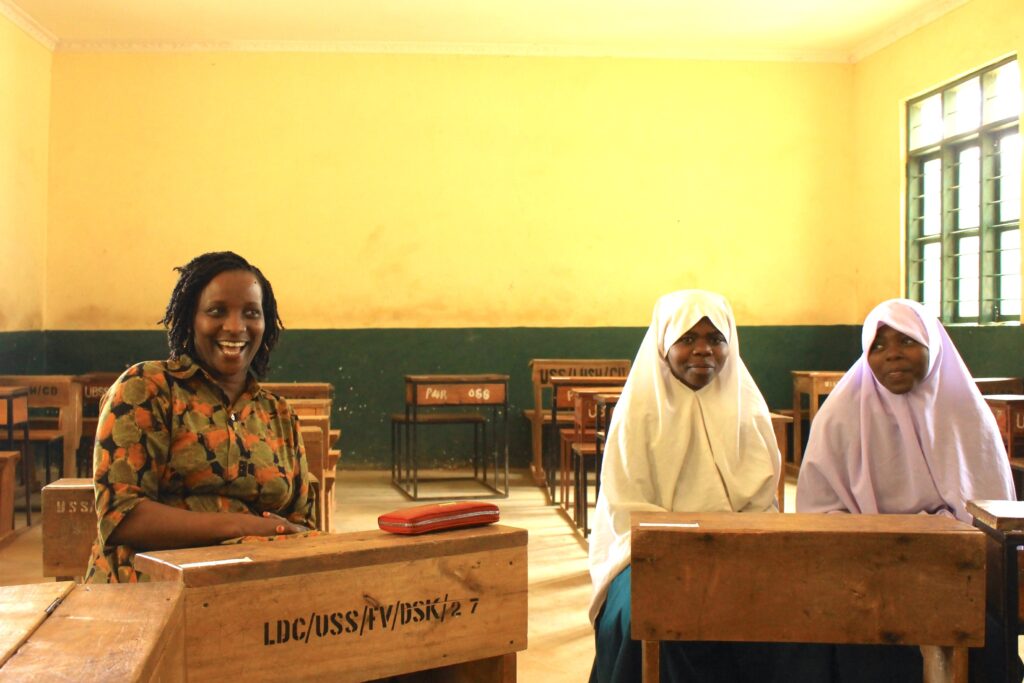
Theo Seuya discusses the importance of education with students at Ubiri Secondary School who completed Asante Africa’s Bridging the Gap Program.
Theo, tell me a bit about yourself and what compelled you to invest in education?
I wouldn’t be here if it were not for education. I was born in a rural community in which education for girls was not a priority. I was the first girl in my community to go to secondary school. I am now a Country Director and hold a Master’s Degree from the UK. It’s all because I was given access to education.
I went through the Tanzania education system myself, taught for many years, and was a university lecturer. Through these experiences, I saw two major problems impacting education in Tanzania: the abrupt switch in language of instruction from Swahili to English in secondary school, and the lack of professional development opportunities for teachers. I’m just starting my PhD in Education at Mwenge Catholic University, and would like to focus my thesis on continuing professional development for teachers in Tanzania.
How does investing in children’s education contribute to poverty alleviation?
Education is the process of acquiring knowledge, skills, values and attitudes. People who are learned are able to apply (put into practice) their skills and knowledge to solve challenges and meet basic needs. Hence, life is improved, and that is development and poverty alleviation. If education is obtained but not applied, no transformation happens. Transformation happens when education changes one’s mindset to bring about behavioral changes from good to better.
Education helps one realize their potential. When you realize your potential, you use your knowledge as a tool to find local solutions to the challenges in your own life and in your community. If we want to get rid of poverty, we have to first give our children quality education.
What best practices do you recommend to organizations supporting children’s education?
Giving children access to education is not enough. We need to invest in quality education. There are many factors that contribute to quality education. We need qualified, competent and self-motivated teachers who facilitate the learning process. We also need teaching and learning materials, and appropriate school infrastructure like latrines and proper seating.
The philosophy of education in Tanzania is “education for self-reliance.” I love that, because education liberates! However, we have to ask ourselves: are we living this philosophy? Are we bridging the gap between knowledge and skills?
If we really want to transform our communities, then we need to invest in education from the very beginning. It informs everything else. It sets people free! But no organization can do it all. We need to come together to address education gaps.
What gives you hope and joy in your work with children?
The thing I love about children and youth is they are always curious to learn and open minded. They are the current and future change agents in our communities. If they are not excited to learn, there is a problem with the facilitator or the content. A good facilitator should always make sure the children love what they are learning. When we put young people at the center of learning, and teach them according to relevant curriculum, they learn to become change agents in their communities, hence breaking the vicious cycle of poverty. The power to transform lives is in education!
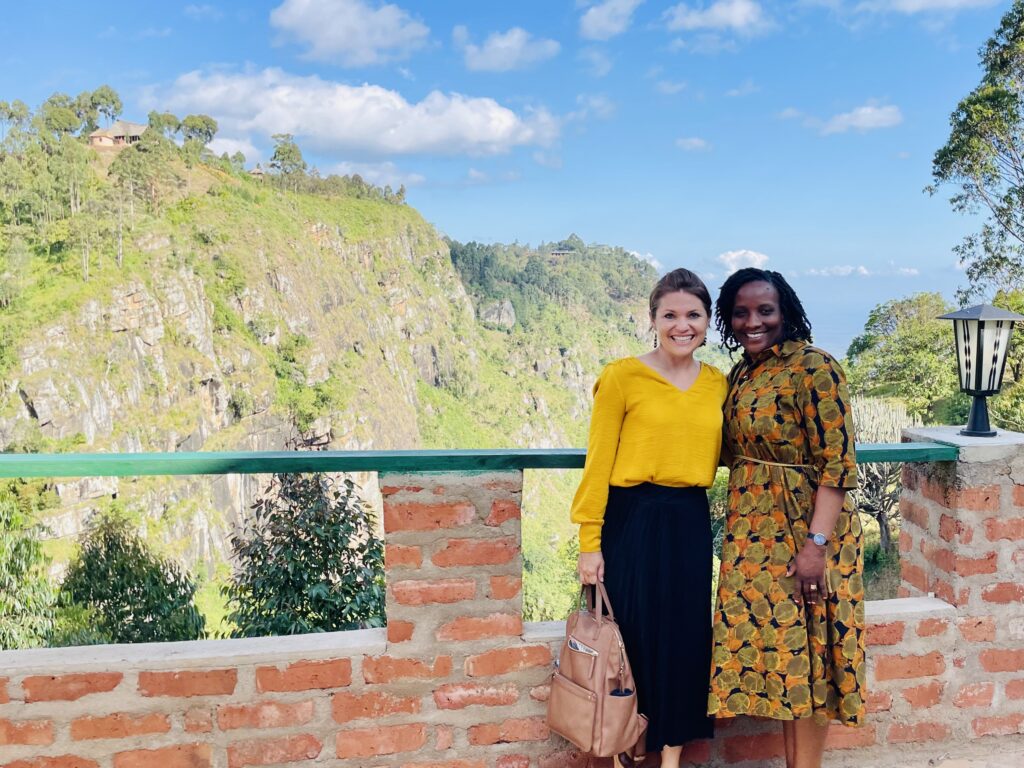
One Day’s Wages’ Grants Director, Daphne Fowler, with Asante Africa Foundation Country Director for Tanzania, Theopista Seuya.
More stories of impact
Turning Challenges into Opportunities: Masoka’s Journey of Empowerment
Masoka’s hands are stained with the rich soil of the land she now calls home. A 37-year-old mother of four, she arrived at Dzaleka Refugee Camp in Malawi after fleeing the conflict in her home country, the Democratic Republic of the Congo. The future felt uncertain,...
What Was USAID, and What Now?
USAID has made news headlines constantly over the last few months. You may find yourself wondering: what is USAID, and is One Day’s Wages affected by its dismantling? As a global development organization, we at ODW care deeply about the people who depend on foreign...
Growing Love, One Drop at a Time: How One Woman Turned Her Birthday into a Gift of Clean Water
When Sara, a graphic designer and mother from Oregon, started thinking about how to celebrate her birthday, she decided to do something different—something meaningful. With a belief that “we are all connected… with the power to affect change by how we live our own...
Bridging the Gap: An Update on Our Response to the Funding Freeze
In Matoh, Cameroon, a mother prepares to give birth. Life in a conflict zone means getting to a safe facility with trained health workers is nearly impossible. Fortunately, a new mobile clinic begins offering prenatal care and transportation to a birthing clinic,...
Why We Invest in Women
There’s an old Ghanaian proverb: “If you educate a man, you educate an individual. But if you educate a woman, you educate a family.” On this International Women’s Day, we celebrate the power of women—how their resilience, leadership, and determination transform not...
The Case for Social Inclusion
Today is the World Day of Social Justice! Never heard of it? Never fear, we’re here to fill you in. In 2009, the United Nations General Assembly launched the World Day of Social Justice to recognize our on-going need for inclusive economic development and decent work...
LEARN
Leadership
Transparency
Read the Latest
Contact Us
COLLABORATE
Faith Groups
Schools
Businesses
Get Involved
One Day’s Wages exists to alleviate extreme poverty by investing in, amplifying, and coming alongside locally led organizations in underserved communities.
©2025 One Day's Wages is a registered 501(c)(3) organization | Tax ID #26-2566653 | Privacy policy | Terms of use
P.O. BOX 17575 Seattle, WA 98127 | Contact us

